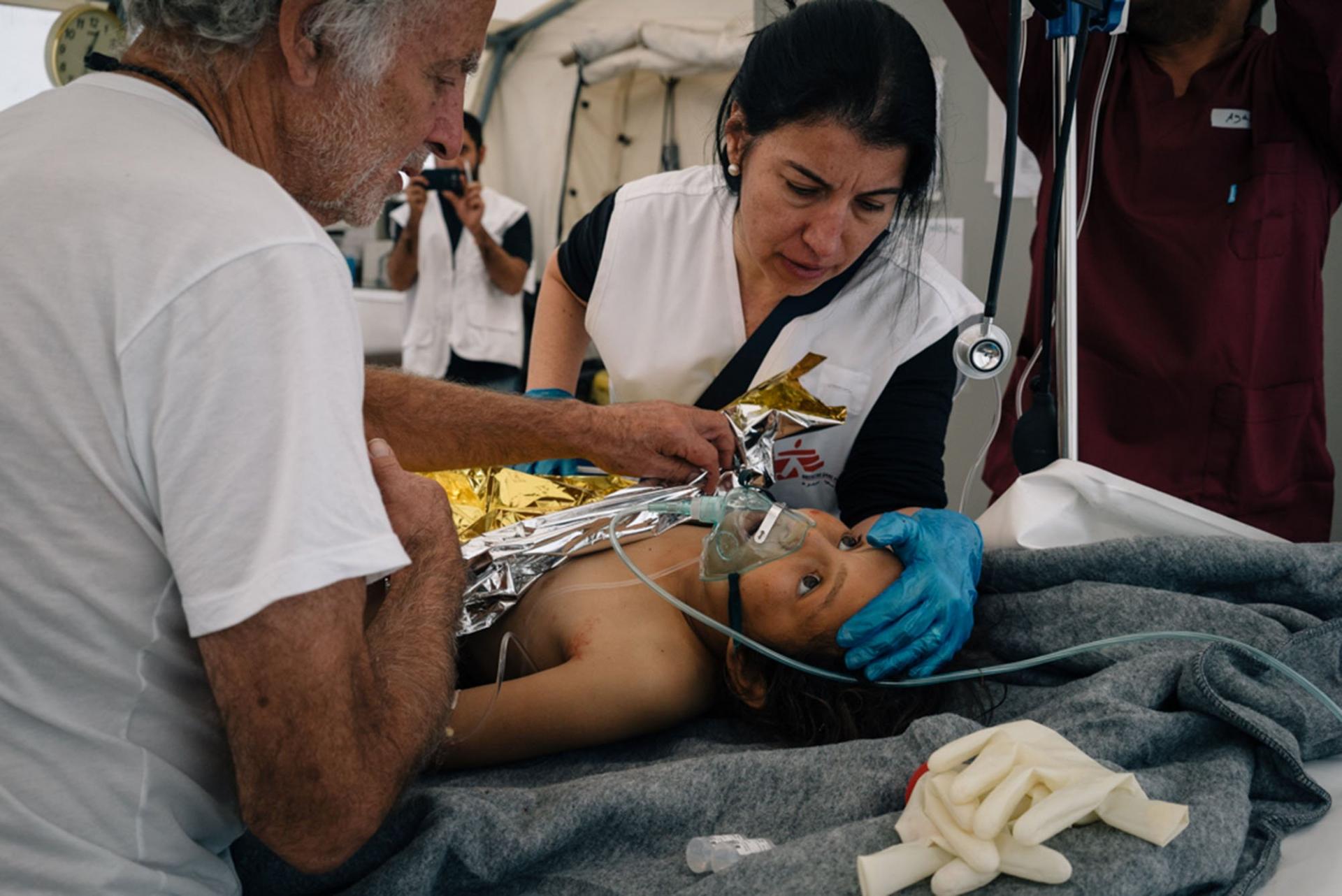A South African emergency doctor spent three months working in Iraq, helping bring trauma care to people fleeing the war.
“We need to tell the story of Mosul,” says Dr. Vanessa Naidoo, an emergency doctor from Cape Town, who just spent three months working in a Doctors Without Borders (MSF) hospital treating those caught in the conflict between the Iraqi government and coalition forces and the Islamic State (IS) group in Iraq.
“Coming back to South Africa, I realise how little people here know about how much destruction happened in Mosul; how many people died; and how horrific it was for the civilians caught in this war.”
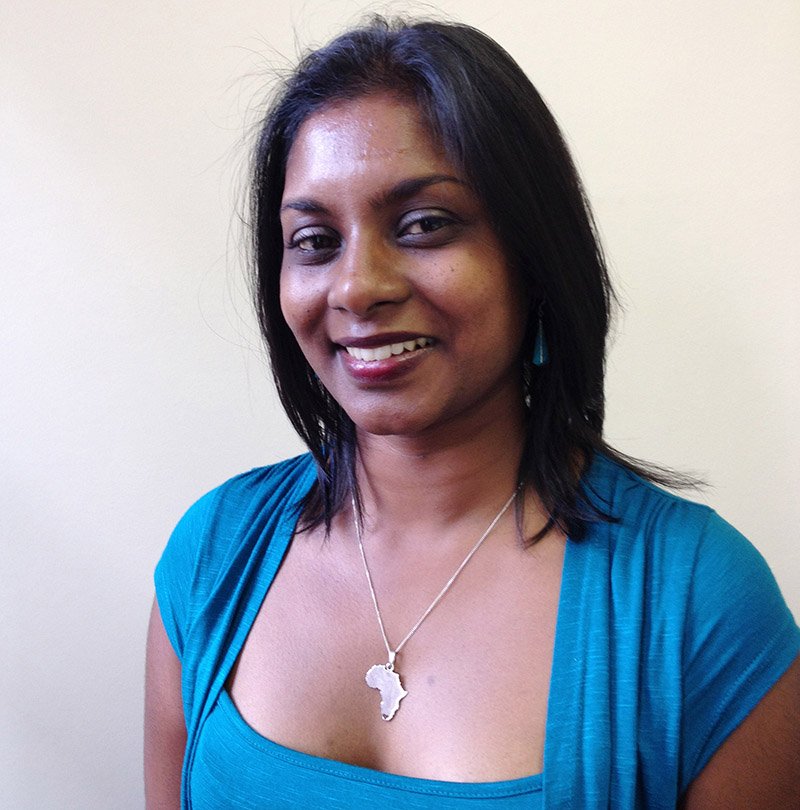
“Countless people were wounded, starving and trapped in their houses, getting killed in the fighting and explosions, and it is as if no one knows. That’s the worst tragedy of it all,” she says. “Thousands of civilians, including children, were injured and killed in Mosul, but it felt like the world turned a blind eye because it was just another battle in the ‘fight against terrorism,’ and this was the price that we’re willing to pay as ‘collateral damage.’”
When Vanessa first arrived in Iraq, she went straight to work at the busy Hammam al–Alil field trauma hospital – originally the nearest surgical facility to conflict-wracked West Mosul, about 12km from the frontline.
“The hospital was already running for about six weeks when I got there. At first, we saw war-wounded patients who needed life or limb-saving surgery and received mass casualty incidents daily. As the frontline moved further away and other organisations began to provide medical care the number of fresh trauma cases coming to Hamam al-Alil decreased. We started seeing more patients coming in with old injuries and septic wounds, often they had not received any medical treatment for weeks, or had been poorly managed in the barely functioning hospitals that remained inside West Mosul.”
“Many of those who had escaped or been freed from Mosul were severely malnourished and dehydrated. Food shortages, exorbitant prices and the physical danger of trying to access all basic necessities meant civilians were left to eat whatever they could find.”
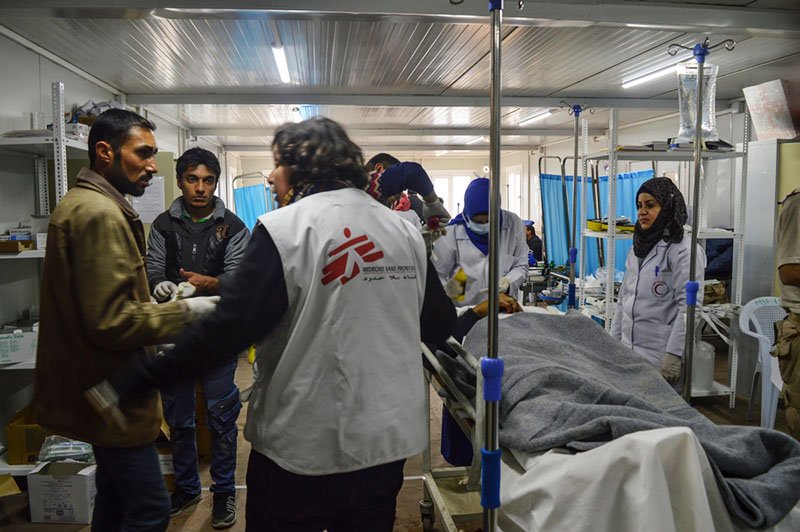
‘What’s happened in Mosul is huge’
Vanessa has worked with MSF since 2012, in different positions including paediatrics, anaesthetics and emergency medicine. At Hammam al-Alil, she managed the emergency room and the inpatient department.
Although she’s worked in challenging places including Afghanistan, Syria and South Sudan, she says the situation in Mosul was “one of the more horrific things I saw in terms of the human cost. It was just a travesty.”
“As much as it was traumatic and difficult for those affected, at the same time the Iraqi people I met shared a sense of optimism because of what they had escaped,” she adds.
“Mosul was destroyed and they had lost friends and family members in the process, but there was still relief and freedom from the terror they had lived under for the last two years and hope that things would improve once the war ended. There is a wonderful resilience amongst the Iraqi people, our staff was always going beyond what was expected of them to help our patients.”
For Vanessa practising clinical medicine is her “passion” and her “strength”, and being right there with the people most in need of care motivates her to keep working with MSF.
“I like to be in the hospital dealing directly with patients,” she says, recalling one patient who will always stand out in her mind.
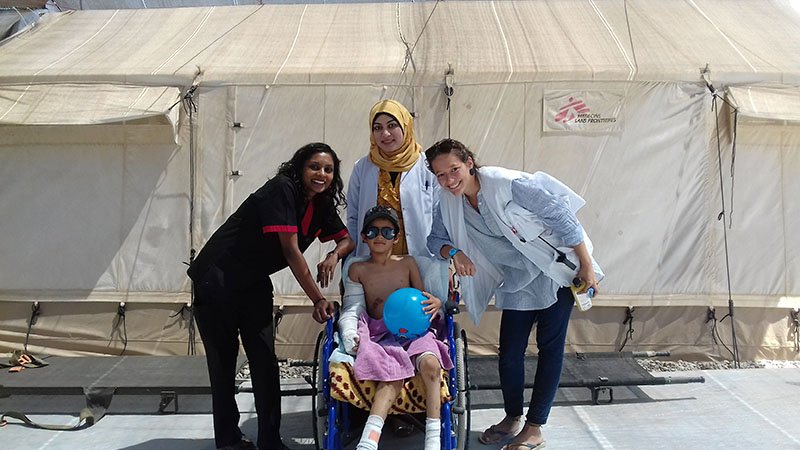
“A nine-year-old boy with severe burns was brought by ambulance to the hospital one day. He was injured in an airstrike near a market where he lived. His father was killed while he suffered multiple fractures and burn wounds. When he arrived he screamed continuously for hours, his shrieks could be heard across the hospital all day, and when he had nightmares I could hear him from my bed in MSF office more than 500m away.
"His mother was amazing, she had carried him out of the besieged area – moving through different neighbourhoods amidst active fighting for four days until they reached the military beyond the active fighting zone who brought them to our hospital.”
“When he arrived, he was ill, in pain and severely psychologically traumatised. We treated him for six weeks, with multiple surgeries and wound debridement. All our staff got really close to him as we watched him recover and the screams grow less frequent. When he was finally discharged we could hardly believe the change. He had gone from this fragile, tortured being – almost having lost his life – to a little boy again.”
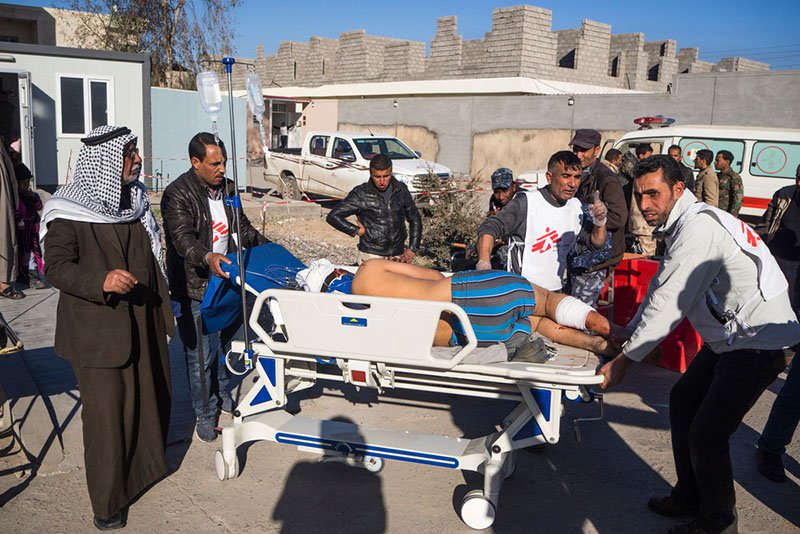
Vanessa says some things she saw in Mosul, she will never forget: “The plight of people there at the moment, good people who are trying to do their best to survive, people who have lived for so long in these horrific circumstances, I could not imagine it if I had not seen it myself.”
“If something like this happened in a place like America, everyone would know and would care and would pay attention. There’s no way so many people could die in the West in six months and no one would say anything about it, or it wouldn’t be all over the news. So this isn’t ‘just another war in the Middle East’. What’s happened in Mosul is huge, and I feel it should not happen anywhere in the world again.
"The ‘war on terror’ will continue, but ignoring or not paying attention to the way it is fought, or how people are impacted, shows a world that accepts that not all civilians need to be protected, that sometimes killing civilians is okay.”
At the end of July 2017, MSF closed its project in Hammam al-Alil. Over the course of the conflict in Mosul, the town received major influxes of IDPs and war-wounded.
In February, MSF opened a field trauma hospital with a 22-bed emergency room, two operating theatres, a seven-bed intensive care unit and recovery room, as well as 32-bed inpatient ward and mental health services.
For more than a month since the project opened, the MSF project was the closest surgical facility to West Mosul. By the end of June, the emergency room received 3,852 patients, including more than 1600 in critical or life-threatening condition.
In the same time period, the team performed 474 surgical procedures, the majority of which were emergency operations, and admitted over 750 patients for hospital care.
The project was closed due to a reduced level of need for life-saving trauma assistance and growing capacity from other medical providers.
Find out more about MSF's work in Iraq.
